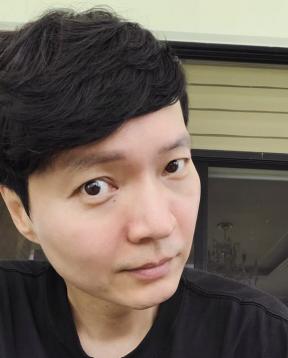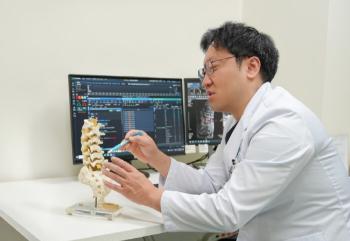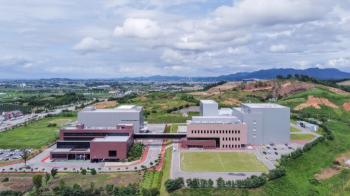Head and neck cancer treatment response opens the way for prediction...Precision Analysis of Cell-Immune Response with Cell GPT
Oct 30, 2025
We found subtypes that cut the effects of immune anticancer drugs in a smaller range than the cell unit.
A joint research team of Kim Hye-ryeon, Hong Min-hee, and Kim Chang-gon of Yonsei Cancer Hospital, Ko Yoon-woo and Shim Nam-seok of the otolaryngology department, and Lee In-seok and Cha Jun-ha of Yonsei University's School of Life Systems announced on the 30th that they have identified cell subtypes that affect the treatment response of immuno-oncology drugs.
The findings were published in the international journal Cell Reports Medicine (IF 10.4)'.
Unlike typical non-surgical treatments such as chemotherapy and radiation therapy, immune anticancer drugs directly activate the patient's immune system and induce them to attack tumors.
Among immuno-cancer drugs, 'PD-L1 inhibitors' that sustain and strengthen the immune response and 'CTLA-4 inhibitors' that initiate the immune response are widely used in several carcinomas due to their good medicinal properties.
However, more than half of all patients do not take drugs, so studies to confirm the effectiveness of the treatment before administering immuno-cancer drugs are a hot topic in the world.
Professor Kim Hye-ryeon's research team compared the results of head and neck cancer patients who participated in clinical trials for immuno-cancer therapy by dividing them into a group that administered PD-L1 inhibitors alone and a group that administered CTLA-4 inhibitors simultaneously to PD-L1 inhibitors. Prior immuno-cancer therapy is a treatment strategy in which cancer cells are reduced before surgery.
At this time, the research team used 'foundation model'. With artificial intelligence applying vast biological data at the cell level, a learning model also called 'Cell GPT (Cell GPT)' helps to precisely analyze complex cell state and immune response differences.
The research team conducted a 'single cell transcriptome analysis' that measures how certain genes are expressed in a single cell and 'T cell receptor analysis' that measures the immunity of T cells, which are immune cells.
As a result, two subtypes of T cells previously known to be related to the effects of immuno-oncology drugs were identified. Even if they have the same T cell, activation of T cell subtype 1 increases the effectiveness of immune anticancer drugs, and prevailing T cell subtype 2 shows resistance to immune anticancer drugs. Even if you have the same T cell, the treatment response varies depending on the dominant subtype.
In addition, the research team found that the CTLA-4 inhibitor, a drug used for parallel administration, activates cells that attack cancer cells (CD4T) and at the same time strengthens cells (4-1BB positive control T cells) that suppress immune responses from occurring excessively. This was the reason why the treatment response was different among patients in CTLA-4 combination therapy.
Professor Kim Hye-ryeon said, "Through this study, we were able to take a step closer to establishing a customized treatment strategy for patients by confirming the prediction method of immune anticancer drug treatment response."In particular, new treatment strategies targeting T-cell subtypes will contribute to further enhancing the effectiveness of immuno-oncology treatment and reducing unnecessary treatment in the future."
A joint research team of Kim Hye-ryeon, Hong Min-hee, and Kim Chang-gon of Yonsei Cancer Hospital, Ko Yoon-woo and Shim Nam-seok of the otolaryngology department, and Lee In-seok and Cha Jun-ha of Yonsei University's School of Life Systems announced on the 30th that they have identified cell subtypes that affect the treatment response of immuno-oncology drugs.
The findings were published in the international journal Cell Reports Medicine (IF 10.4)'.
Unlike typical non-surgical treatments such as chemotherapy and radiation therapy, immune anticancer drugs directly activate the patient's immune system and induce them to attack tumors.
Among immuno-cancer drugs, 'PD-L1 inhibitors' that sustain and strengthen the immune response and 'CTLA-4 inhibitors' that initiate the immune response are widely used in several carcinomas due to their good medicinal properties.
However, more than half of all patients do not take drugs, so studies to confirm the effectiveness of the treatment before administering immuno-cancer drugs are a hot topic in the world.
Professor Kim Hye-ryeon's research team compared the results of head and neck cancer patients who participated in clinical trials for immuno-cancer therapy by dividing them into a group that administered PD-L1 inhibitors alone and a group that administered CTLA-4 inhibitors simultaneously to PD-L1 inhibitors. Prior immuno-cancer therapy is a treatment strategy in which cancer cells are reduced before surgery.
At this time, the research team used 'foundation model'. With artificial intelligence applying vast biological data at the cell level, a learning model also called 'Cell GPT (Cell GPT)' helps to precisely analyze complex cell state and immune response differences.
The research team conducted a 'single cell transcriptome analysis' that measures how certain genes are expressed in a single cell and 'T cell receptor analysis' that measures the immunity of T cells, which are immune cells.
As a result, two subtypes of T cells previously known to be related to the effects of immuno-oncology drugs were identified. Even if they have the same T cell, activation of T cell subtype 1 increases the effectiveness of immune anticancer drugs, and prevailing T cell subtype 2 shows resistance to immune anticancer drugs. Even if you have the same T cell, the treatment response varies depending on the dominant subtype.
In addition, the research team found that the CTLA-4 inhibitor, a drug used for parallel administration, activates cells that attack cancer cells (CD4T) and at the same time strengthens cells (4-1BB positive control T cells) that suppress immune responses from occurring excessively. This was the reason why the treatment response was different among patients in CTLA-4 combination therapy.
Professor Kim Hye-ryeon said, "Through this study, we were able to take a step closer to establishing a customized treatment strategy for patients by confirming the prediction method of immune anticancer drug treatment response."In particular, new treatment strategies targeting T-cell subtypes will contribute to further enhancing the effectiveness of immuno-oncology treatment and reducing unnecessary treatment in the future."
|
This article was translated by Naver AI translator.














